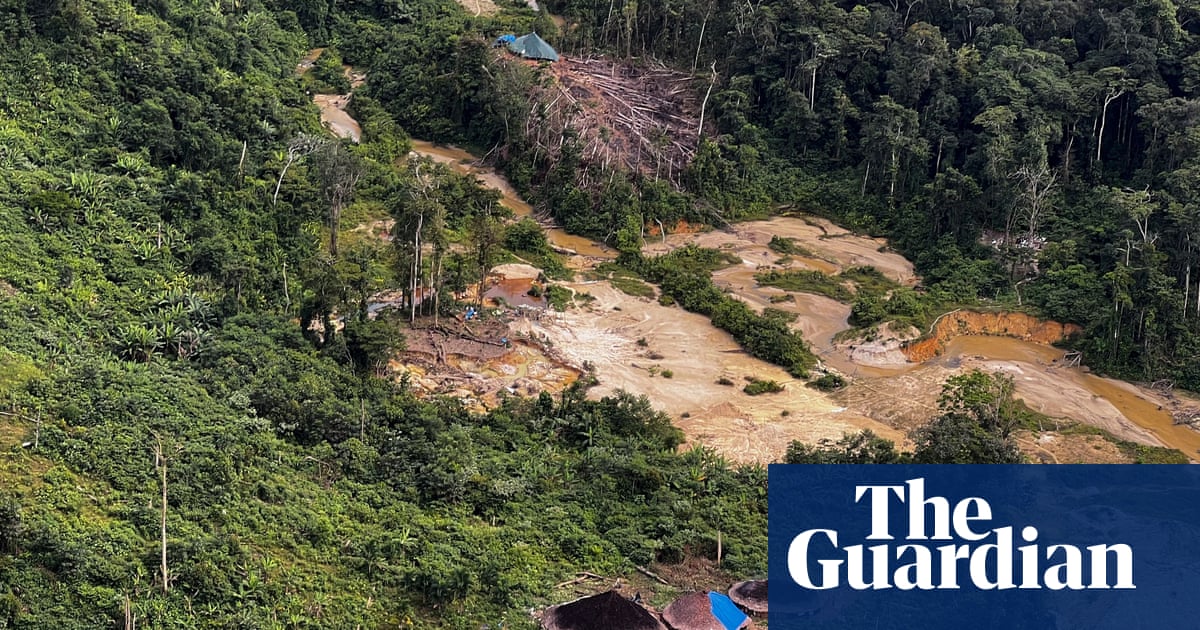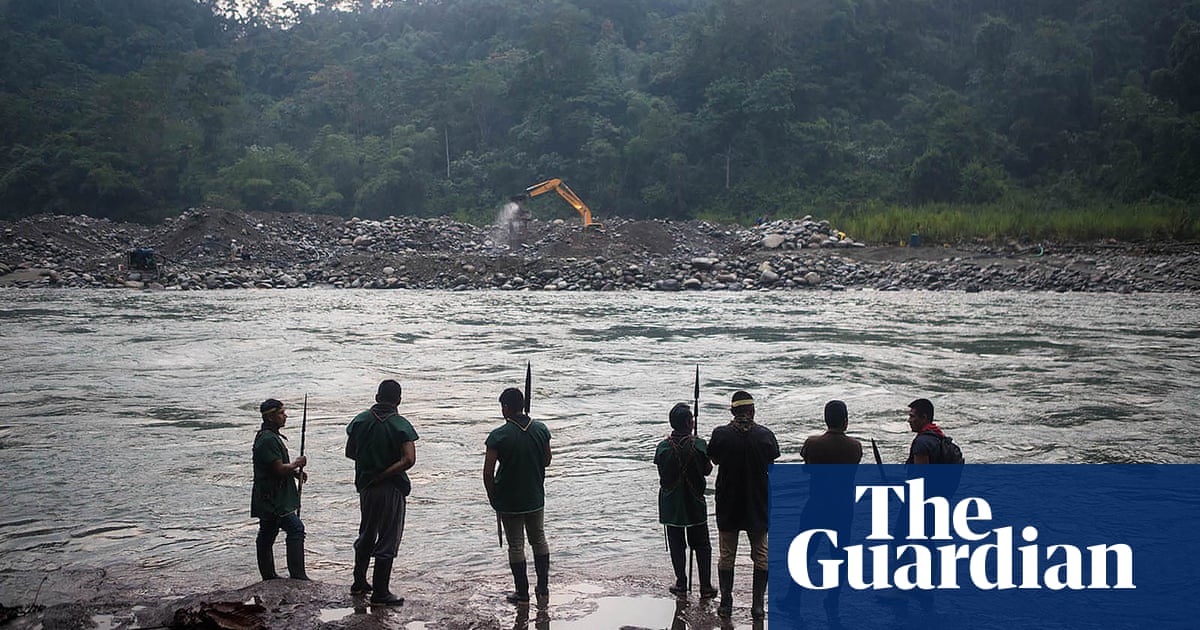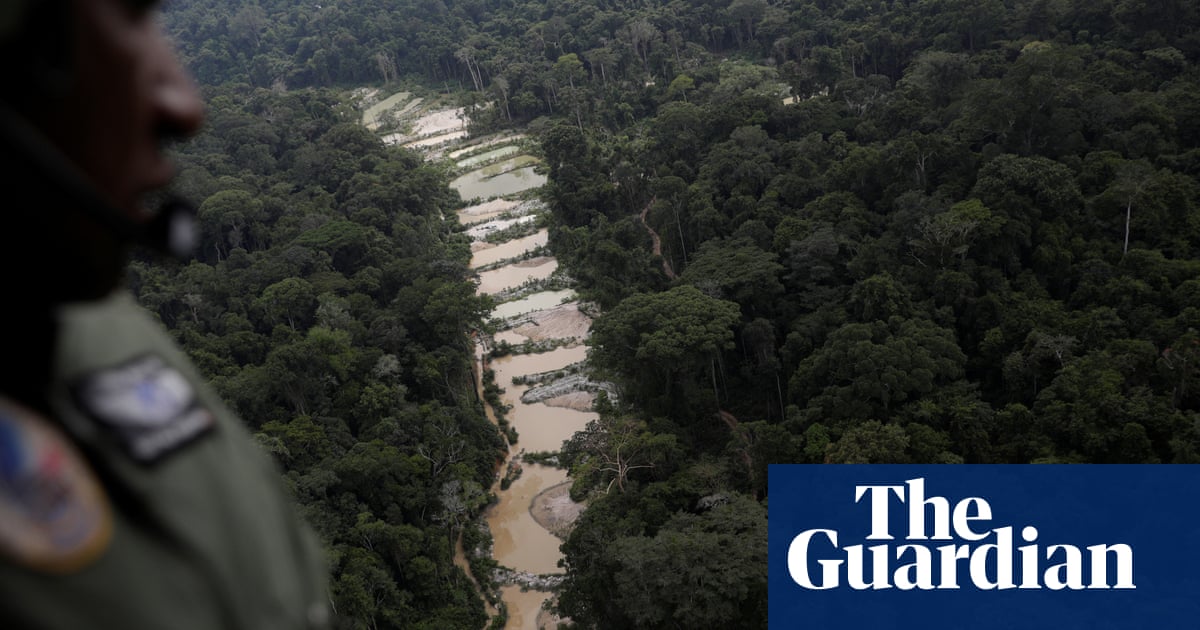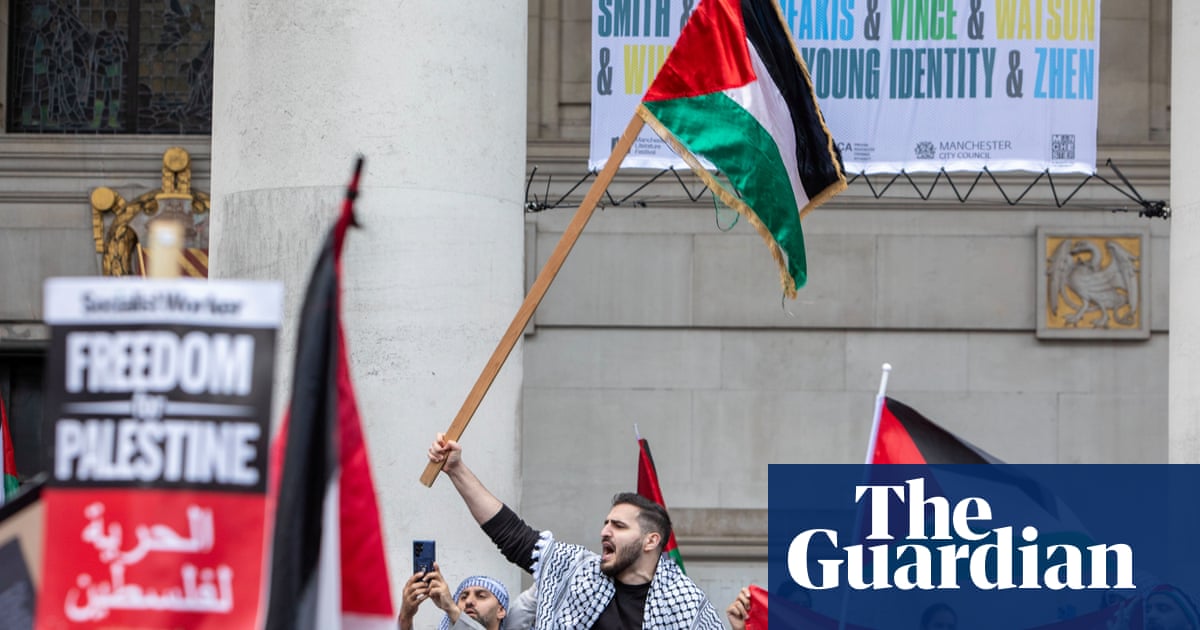
Thousands of illegal miners are resisting government attempts to evict them from Brazil’s largest Indigenous territory, the renowned activist and shaman Davi Kopenawa has said, nearly a year after operations to displace them began.
President Luiz Inácio Lula da Silva made expelling an estimated 20,000 illegal gold and tin ore miners from the Yanomami Indigenous territory one of his top tasks after taking power last January.
Lula visited the region to denounce what he called a premeditated “genocide” committed by the government of his far-right predecessor, Jair Bolsonaro, and ordered an offensive to force miners from the Portugal-sized Amazon enclave.
“Illegal mining on Yanomami land is finished,” a special forces commander for the environmental agency Ibama told the Guardian when it joined his airborne troops on the frontline of that fight.
Those perilous missions have yielded fruit. By July, Brazil’s top federal police chief for the Amazon claimed 90% of the miners had been uprooted, leaving perhaps 1,500 to 2,000 behind. But Kopenawa, who has spent four decades campaigning against the destruction of Yanomami lands, believes many are returning after eviction operations were scaled back.
“I am growing angry … and Mother Earth is angry,” Kopenawa said, estimating that 4,000 miners were operating in a territory where about 30,000 Yanomami and Ye’kwana people live, including groups with little or no contact with outsiders.
“I’m a man of the rainforest, I’m a traditional leader … and I feel these invaders are determined to ruin the Yanomami territory,” added Kopenawa, the president of the Indigenous association Hutukara.
A government source familiar with the region said they suspected that the situation was even worse than described by the Yanomami leader. “There are a heck of a lot of people [working in the mines] at the moment. Way over 4,000, I’d guess,” said the source, who asked not to be named. “It is a really worrying and sad situation. My sense is that the battle [against the miners] has gone back to square one – and that in some areas the situation is even worse than before.”
Davi Kopenawa was born in a Yanomami village on the Toototobi River in the mid-1950s, at a time when missionaries were roaming the remote border region – often with deadly consequences for Indigenous communities. Kopenawa lost many relatives to a measles epidemic started by the child of a pastor.
During the 1980s, Yanomami lives were upended by a gold rush in which 40,000 prospectors invaded their ancestral lands in search of a modern-day El Dorado.
“They are evil beings. They do not fear rain, heat or diseases,” Kopenawa wrote of the miners in his memoir, The Falling Sky. “In our language we call them nape wore’ri pé, the ‘outsider peccary spirits’, because they relentlessly dig into the ground and burrow in the mud like wild pigs looking for earthworms.”
Kopenawa’s tireless international activism paved the way for the creation of the Yanomami’s protected territory in 1992. In a government clampdown, most miners were dislodged.
But by the 2000s, rising gold prices and weak enforcement were driving another invasion. Miners used boats, helicopters and planes to sneak into the sparsely populated territory. Activists blamed the anti-environmental rhetoric and policies of Bolsonaro’s 2019-22 administration for emboldening such gangs, who even built an illegal road to smuggle excavators into the region.
Kopenawa voiced relief that Bolsonaro had lost power in the 2022 election. “Bolsonaro truly is an evil spirit … a dirty, criminal president … who brought crime and death to Brazil,” he said.
The activist believes Lula is genuinely committed to defending Indigenous communities and praised Ibama’s efforts to liberate Yanomami lands. “He isn’t a rich man – but he is a man rich in good, positive ideas about our forest and about the Amazon where we live,” Kopenawa said of Lula, whose government has brought about a major reduction in Amazon deforestation in its first year in power.
“Lula cares about us,” Kopenawa said. “Bolsonaro cared only for our subsoil, for money, for gold.” However, the Yanomami leader believes eviction efforts are “cooling off”, prompting miners who fled the initial crackdown to restart their multimillion-dollar operations.
Many prospectors – who have been blamed for a surge in child mortality and diseases such as malaria – were digging up and reactivating mining equipment buried in the rainforest when last year’s offensive began. Heavily armed mining gangs linked to organised crime had never left, Kopenawa said, urging Lula to intensify operations.
In November, a TikTok video emerged showing illegal miners in an aircraft hovering over an isolated village in the Yanomami territory, shouting insults at its inhabitants. “Just take a look at these cannibals, if you’ve never seen them!” one of the miners can be heard sneering.
The government source said Brazil’s failure to control the airspace over Yanomami lands was one of the biggest reasons miners were returning. Despite a flight ban imposed last April, “illegal aircraft are flying as normal”, they said. No permanent river blockades had been set up to cut off supply routes. The rapid dissemination of Starlink satellite dishes had also hampered the crackdown by allowing miners to monitor security forces and get forewarning of their operations.
Kopenawa said: “I’m asking Lula to keep fighting, to keep supporting efforts to protect and to save my Yanomami people and the Ye’kwana. I’m asking him to carry on trying to get the invaders out, because they are inside my home, dirtying our communities and causing trouble.”
In late December, after public prosecutors claimed there had been a “drastic weakening” of anti-mining operations, the Brazilian presidency said Lula had ordered an intensification of eviction efforts and considered protecting the Yanomami a priority.












